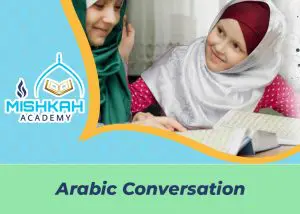How Do You Say Goodbye In Arabic
Table of Contents
ToggleSaying goodbye is a significant part of any conversation, social interaction, or business meeting. It is an opportunity to express gratitude, respect, and well wishes. In many cultures, including Arabic culture, there are specific phrases used to say goodbye. Arabic is one of the most widely spoken languages in the world, and learning how to say goodbye in Arabic is essential for anyone who wishes to communicate effectively with Arabic speakers.
In Arabic, there are several ways to say goodbye, depending on the context and the relationship between the people involved. One of the most common phrases used to say goodbye in Arabic is “ma’a salama,” which means “with peace.” This phrase is usually used in formal settings, such as the workplace, business meetings, or when saying goodbye to a teacher or a mentor. It is a respectful and polite way to bid farewell.
Another common phrase used to say goodbye in Arabic is “ilā al-liqā‘.” This phrase translates to “until we meet again.” It is a warm and friendly way to say goodbye, and it expresses the hope of meeting the person again in the future. This phrase is often used in social situations, such as gatherings with friends or family.
In more casual settings, such as among friends or peers, the phrase “bāye bāye” or “bybye” is often used to say goodbye in Arabic. This phrase is borrowed from English and has become a popular way of saying farewell, especially among younger generations. It is a lighthearted and informal way to end a conversation, and it is often accompanied by a wave or a handshake.
When saying goodbye to someone who is leaving on a trip or a long journey, the phrase “safar sa’aīd” is commonly used. This phrase translates to “safe travels” or “happy journey.” It is a way to express good wishes and prayers for the person’s safety and success on their journey.
In conclusion, saying goodbye in Arabic is an important part of communicating effectively with Arabic speakers. Knowing how to say goodbye in Arabic will help you to express gratitude, respect, and well wishes to your Arab friends, business associates, colleagues, or acquaintances. Whether you are saying farewell in a formal or informal setting, using the appropriate phrase will help you to create a positive and lasting impression.
Start learning Arabic from the comfort of your Home with the Best Online Arabic School
Learn Quran, Arabic & Islamic Online
Arabic Conversation Course
Arabic is an amazingly diverse and complex language that is spoken by more than 300 million people worldwide. It is the official language of over 25 countries and is spoken by people of diverse religious and cultural backgrounds. As a result, learning Arabic has become a necessity for many people around the world. Fortunately, with the advancement of technology, learning Arabic has become easier than ever before. In this essay, we will explore the benefits of learning Arabic online.
One of the benefits of learning Arabic online is the convenience it offers. Online learning allows students to schedule their learning time according to their availability. This means that students can study at their own pace and at a time that suits them best. Additionally, online classes can be taken from anywhere in the world, eliminating the need to travel to a physical location, saving time and money on transportation.
Another benefit of learning Arabic online is the wide range of available resources. Online platforms offer a variety of materials, such as audio and video clips, exercises, study guides, and other interactive learning modules. These resources provide students the opportunity to learn Arabic more effectively and in a more engaging way than traditional classroom learning. Additionally, students can access these resources anytime, anywhere as long as they have an internet connection.
Moreover, online learning is more affordable than traditional classroom learning. Many online Arabic courses offer affordable fees compared to traditional classroom instruction. This makes it more accessible for people of all ages and backgrounds to learn Arabic. Furthermore, online courses also provide individuals who cannot travel to another country to learn Arabic with an opportunity to learn online. This means that students can learn Arabic from the comfort of their own homes, eliminating the need to pay for lodging and airfare.
Another benefit of learning Arabic online is the chance to have a one-on-one session with expert tutors. Learning online enables students to interact closely with instructors who are native Arabic speakers and experts in their field. This ensures that students will receive quality instruction and feedback, and the chance to get the most out of their learning efforts. This kind of direct attention can be invaluable for those who are serious about learning Arabic and want to improve their proficiency in the language.
In conclusion, learning Arabic online is more convenient, affordable, flexible, and effective than traditional classroom learning. The availability of a wide range of resources and the opportunity for one-on-one tutoring allow students to learn Arabic at their own pace and level, making the process more efficient and effective. With online courses, students no longer need to leave the comfort of their homes to learn Arabic, making it more accessible to people of all ages and backgrounds. Therefore, it is safe to say that Arabic online courses are the future of Arabic language learning.
FAQs
Goodbye In Arabic Language
In Arabic culture, saying goodbye holds significant importance and is often accompanied by a particular phrase, whether it’s saying goodbye to a loved one, friend, or colleague. This essay aims to explore the meaning of the word goodbye in Arabic and its significance in Arab culture.
The Arabic word for goodbye is “ma’a as-salaama”, which roughly translates to “Be Safe Or Take Care”. This phrase is an essential part of Arabic culture and is frequently used to bid farewell. It is said to signify wishing someone well and sending them off with good thoughts and prayers. The phrase is often used alongside hugs, handshakes, or kisses on both cheeks, as it is customary in Arabic culture to show affection towards one another during farewells.
Saying goodbye in Arabic is more than just a salutation. The phrase maa as-salaama holds a much deeper spiritual and cultural significance. It is a reminder of the importance of personal connections and the relationships built between individuals. Saying goodbye is an acknowledgment of the time spent together, the experiences shared, and the memories created. It is an opportunity to reflect on the significance of relationships and the impact they have on our lives.
Say Goodbye In Arabic
In Arab culture, saying goodbye is not just reserved for farewells between people but can also apply to objects, places, or experiences. For example, someone leaving their hometown to move to another country may say goodbye to the memories and experiences they had in their home country. This illustrates that farewell is not just about the physical aspect of leaving but also about the emotional process of letting go.
The phrase “maa as-salaama” is also a reminder that goodbyes need not be a negative experience. It highlights the significance of peacefulness and positivity when saying goodbye. It is a reminder that relationships and experiences may come to an end but they are not forgotten. It creates a sense of closure and acceptance of the new beginning that follows a goodbye.
In conclusion, Arabic culture places great importance on the concept of saying goodbye. The phrase maa as-salaama, meaning “with peace”, is an essential part of the farewelling process in Arabic culture. It symbolizes a reminder of the significance of personal connections, relationships, memories, and experiences. It is a prayer for peace and blessings while conveying a sense of closure and acceptance. In essence, it signifies that even in saying “goodbye,” there is hope for positive new beginnings ahead.
Bye In Arabic
One of the most common ways to say goodbye in Arabic is “maa al-salaama”. This phrase literally translates to “with peace”. It is a polite and formal way to say goodbye and conveys the message that one is leaving the conversation or meeting with a peaceful and positive attitude. This phrase is commonly used when saying goodbye to someone you respect or someone you do not know very well.
Besides “maa al-salaama”, another way to say goodbye in Arabic is “ilaa liqaa”. This phrase translates to “until we meet again”. It is often used when saying goodbye to people you know well or when you expect to see them again soon. This phrase indicates that the goodbye is not final and that the speaker is looking forward to seeing the other person again in the near future.
The phrase “maa salama” is another commonly used way to say goodbye in Arabic. This phrase is more casual and can be used with friends and family. It’s an easy way of saying goodbye, and it means “with safety.” It conveys the message that the speaker hopes the other person has a safe journey or good luck in their endeavors. It is important to note that when saying goodbye in Arabic, it is often customary to repeat the phrase two or three times for emphasis.
Arabic Goodbye
Goodbye is a phrase that is used to bid farewell or to say a final farewell. In Arabic, the phrase used to say goodbye is “Ma’a as-salaama”. This phrase is translated literally to “with peace”. In Islamic culture, the word salaam is used to greet and to bid farewell, as it carries the idea of peace and blessings. Saying goodbye is an essential human interaction that signifies the end of an encounter and the start of a new one.
The phrase “Ma’a as-salaama” is a common way to say goodbye in Arabic. However, there are other expressions that can be used depending on the context of the situation. For instance, when parting with friends or family, the phrase “Allah yihfazakum” which roughly translates to “may Allah protect you” can be used. In a work setting, the phrase “Maa sendukh” or “Ila al-liqaa” can be used, which means “until we meet again”.
In conclusion, saying goodbye is a vital human interaction that signifies the end of a meeting and the start of a new one. Saying goodbye in Arabic is usually greeted with a prayer for safety and blessings. The phrase “Ma’a as-salaama” which means “with peace” is commonly used to say goodbye in Arabic, with other more context-specific phrases able to be used in different settings.


























